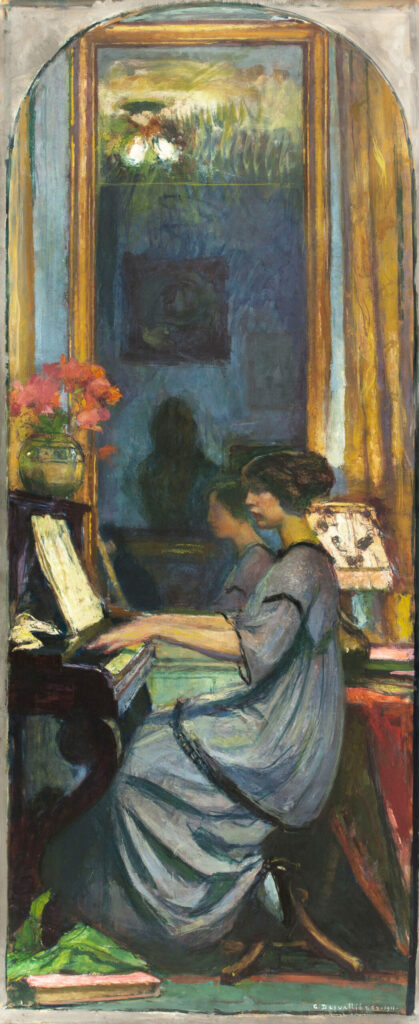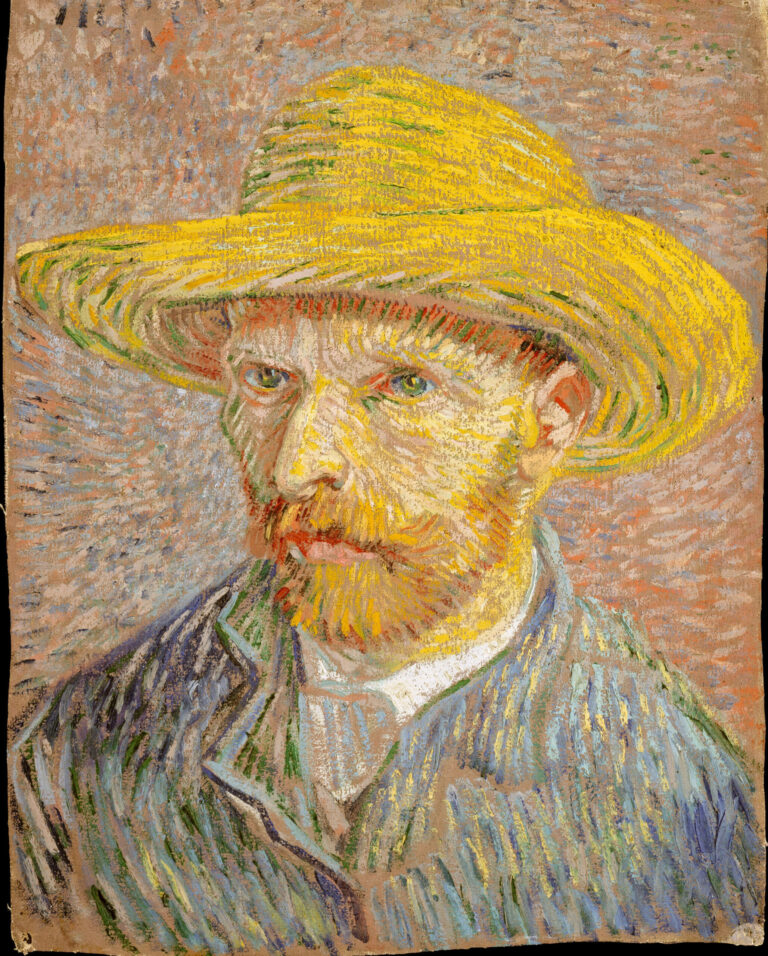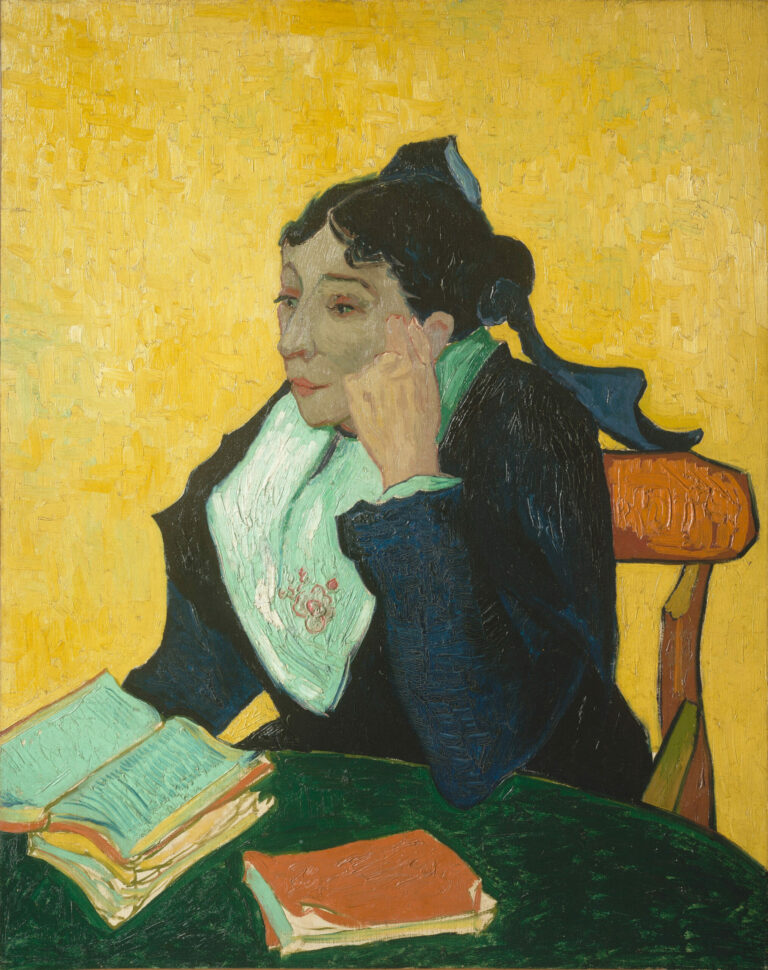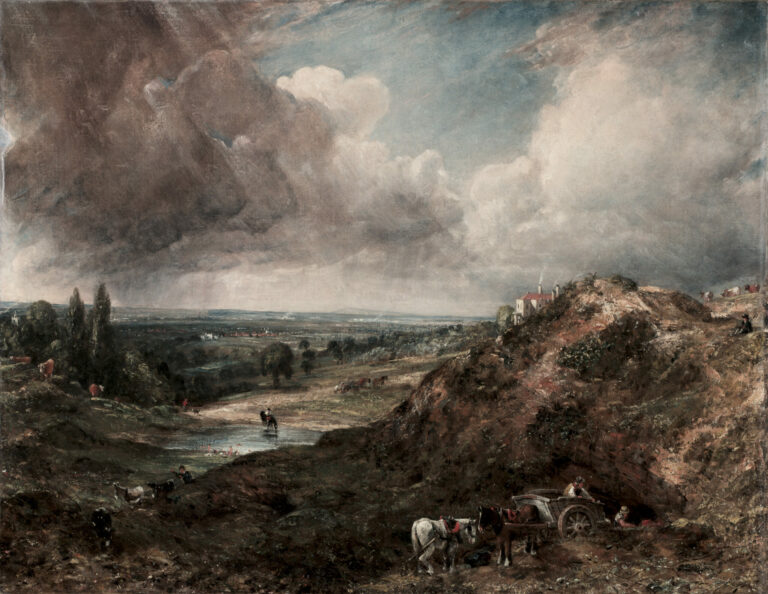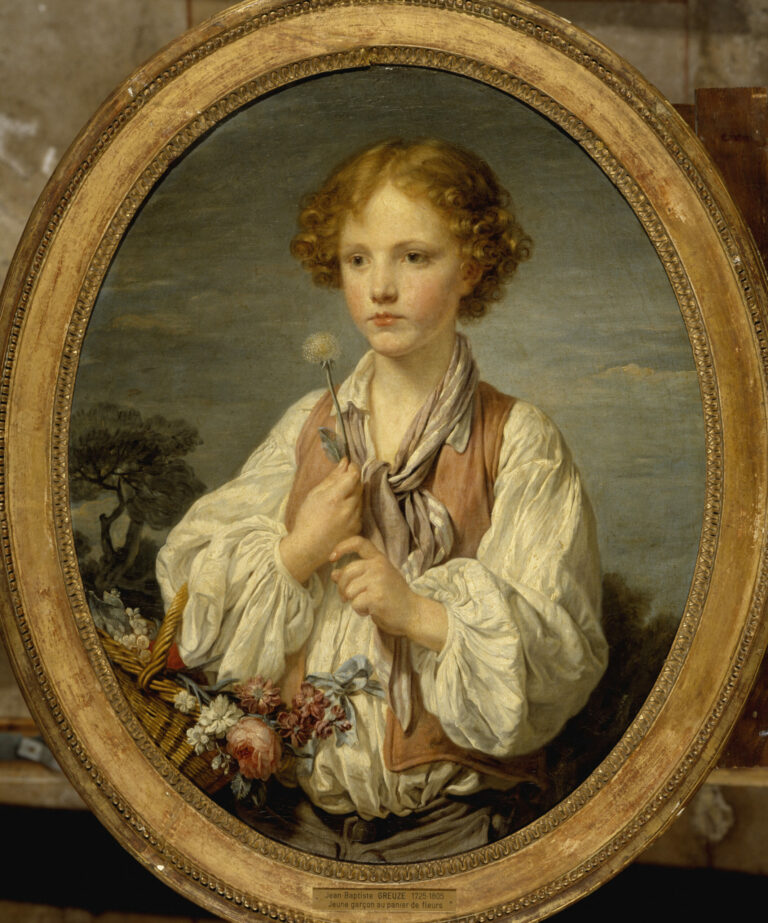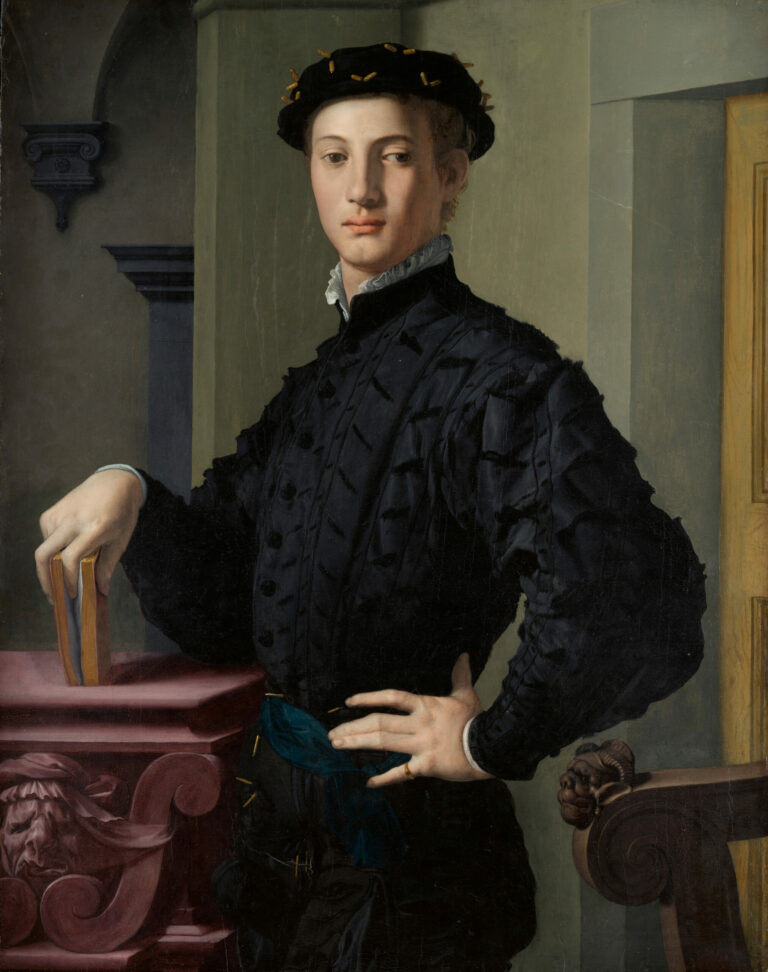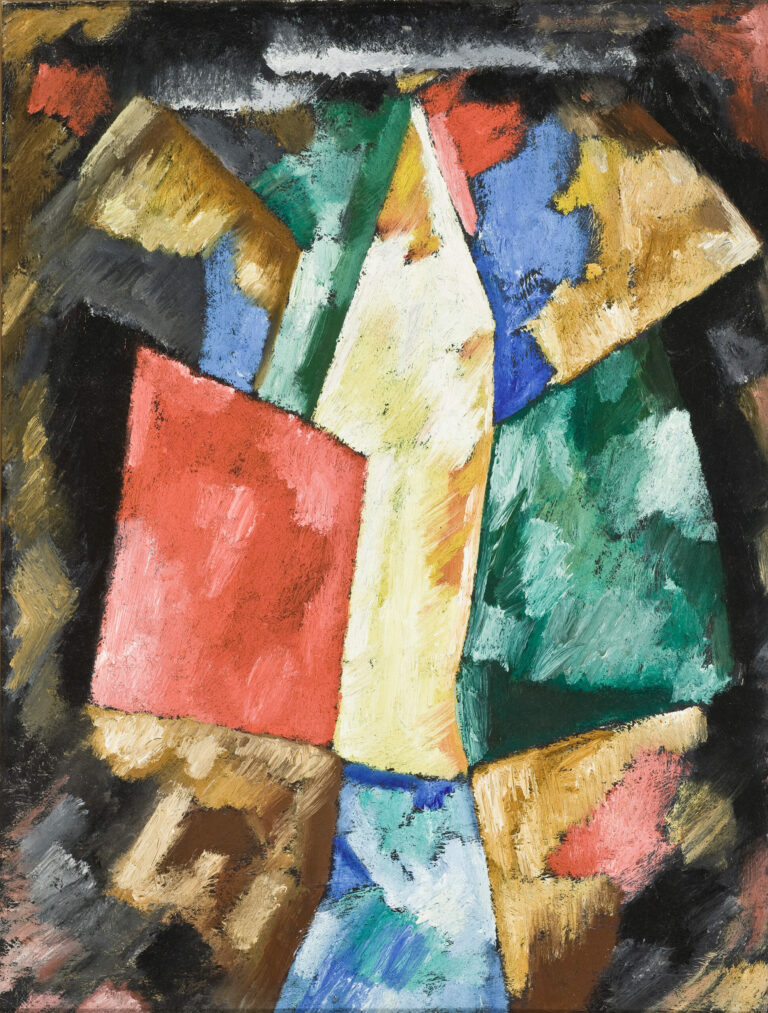Desvallières captures Parisian bourgeois intimacy in 1911 with striking modernity. The young pianist, dressed in a blue-grey gown with silken folds, leans toward her keyboard in an attitude of graceful concentration.
The artist orchestrates a bold chromatic dialogue between the golden tones of the curtains, the vivid red of the flowers, and the deep blues that bathe the scene. The rounded mirror reflects the intimacy of the moment, creating a poetic mise en abyme that opens the closed salon space toward a dreamed elsewhere.
The free technique, with generous impasto, reveals Post-Impressionist influence while maintaining classical readability. This private commission testifies to Desvallières’ growing reputation among cultivated high society, who appreciated his ability to unite portraiture tradition with pictorial modernity in compositions of rare decorative elegance.
Work Details
- Portrait of Mademoiselle Yvonne Robiquet, Georges Desvallières, 1911
- 190 x 79.5 cm
- Paris Musées, Petit Palais, Musée des Beaux-Arts de la Ville de Paris
Currently displayed: Ground Floor, Room 09 (Concorde Hall) - https://www.parismuseescollections.paris.fr/fr/petit-palais/oeuvres/portrait-de-mademoiselle-yvonne-robiquet
Georges Desvallières (1861-1950) embodies the French artistic transition at the turn of the century. A student of Gustave Moreau alongside Matisse and Rouault, he developed a personal style blending Symbolism with emerging Fauvism. Profoundly marked by the Great War in which he lost his son, he would devote his mature years to sacred art, notably through the Sacred Art Workshops founded with Maurice Denis.

